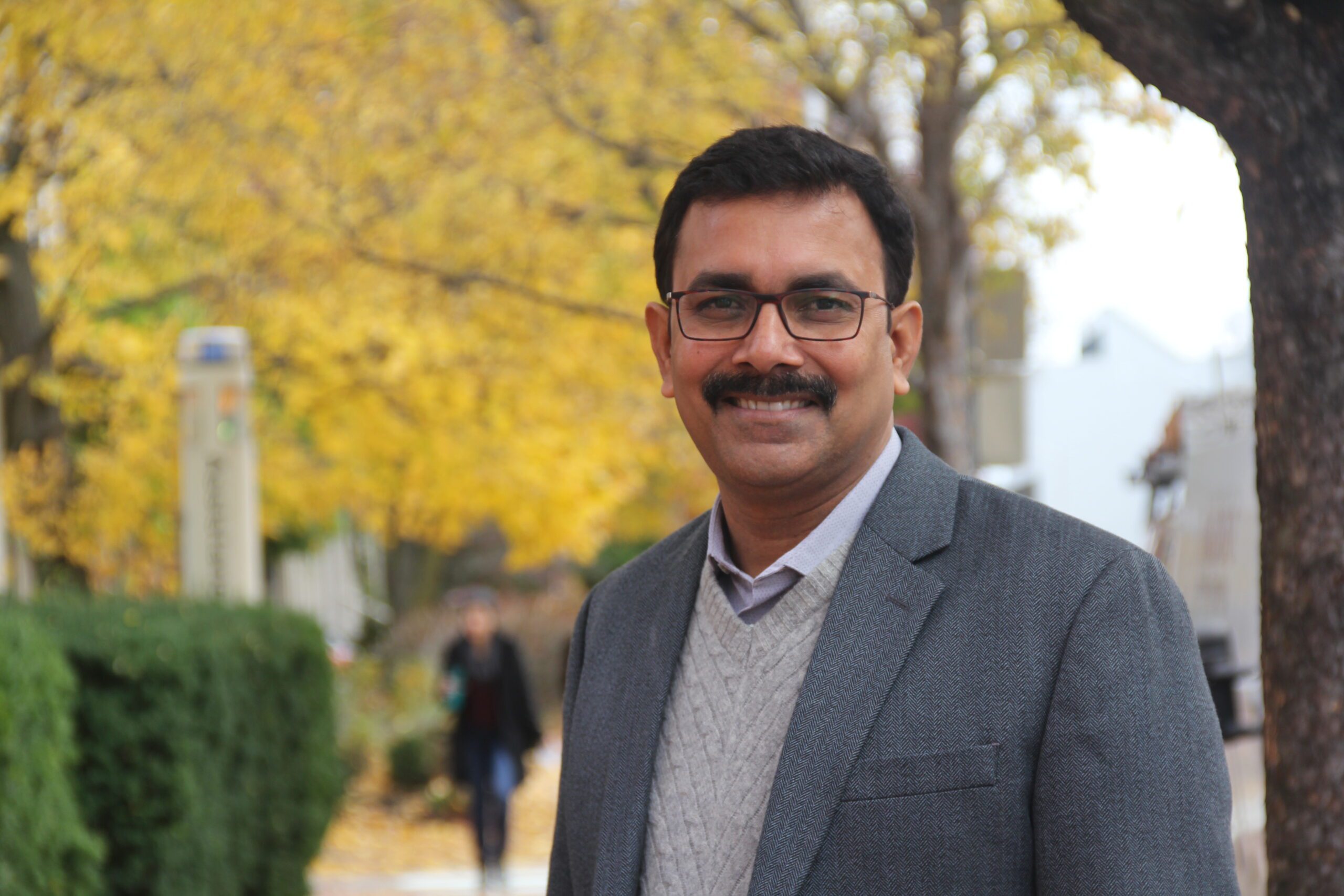SAI India Country Director Sanjay Kumar recently celebrated his first anniversary in the role. Kumar is responsible for expanding SAI’s presence in the region. He has initiated a monthly India Seminar Series, beginning in January 2018.
In addition to his work as SAI India Country Director, Sanjay recently wrote a powerful op-ed in The Hindu about food wastage as a “social delinquency.”
How did you first connect with the Lakshmi Mittal South Asia Institute? Could you describe your career path?
I started my career in Delhi as a grassroots organizer at SEWA, one of India’s largest organizations for women. I worked at SEWA for nearly two decades, leading the expansion process as SEWA Bharat Director in five Indian states. As a passionate photographer, I also documented the lives of women workers in the informal economy. I exhibited my photos at many international art galleries, including the House of Commons in London.
Towards the end of my time at SEWA Bharat, I was looking for a career-building challenge. I spent a year at the Harvard Kennedy School as a Mason Fellow, where I received a Master’s in Public Administration. At Harvard, I realized the potential for translational research and that the synergy between action and knowledge in India is lacking.
I participated in key SAI events while I was at Harvard. When I heard about the opportunity to work as the SAI Country Director in India, I quickly realized the position would be the right platform for me to facilitate the connection between knowledge and action.
Could you describe your experience as a Mason fellow?
During my time as a Mason Fellow, I was looking for new ideas and connections. The program is ideal for people who want to spend a year in school learning new skills and building relationships. It gave me an opportunity to interact with classmates from 85 different countries, and learn about their cultures and the challenges they face. We made important connections and built foundations for future collaborations.
The Mason Fellowship Program trains Fellows to understand public administration in a humane, effective and democratic way. I acquired a diverse skill set and values that have shaped how I engage with my current responsibilities as the SAI India Country Director. My formative years at SEWA made me an effective, grounded, and responsible community leader and the Mason Program enhanced my ability to collaborate globally.
You are celebrating one year on the job. How has the SAI India office changed over the last year?
I am fortunate to be the first SAI Country Director in India. When I accepted this position, I knew that setting up a new office would be challenging. I had gone through the same process for SEWA, as I was responsible for setting up its new office in Delhi. The difference is that with SEWA, I had the job for many years and had a large team. With the SAI India Office, I came out of my comfort zone to build up a new office with just one other team member. Thankfully, we received a tremendous amount of support from our Cambridge office, especially from SAI Executive Director Meena Hewett and SAI Faculty Director Tarun Khanna.
Our first office space was temporary and we have since moved to a more permanent home. We are now in the process of building our India office team. This past year, I have been involved in nearly every aspect of the office, from organizing talks by faculty to facilitating connections between students from Delhi, Mumbai, Jammu, and Kolkata with Harvard alums, government, and private sector contacts.
What are your hopes for the Delhi office in the next several years?
I would like to see the Delhi office become an intellectual hub and platform, in which we engage with people from academia, the government, civil society, and the private sector. Since SAI is a multidisciplinary platform within Harvard, I would also like to reach out to faculty and invite them to do more work in India.
The SAI India Office plans to follow the example of the Cambridge office and conduct interdisciplinary work that engages with the arts, sciences, humanities, and social sciences. Through innovative training with our faculty members, we hope to support researchers, academic leaders, administrators, and students in India. Furthermore, I would like to see our projects, programs, and the knowledge generated by our faculty members inform the actions of policymakers, the government, and civil society organizations.
Could you tell me about the India Seminar Series?
We just launched our India Seminar Series, which brings together Harvard faculty, affiliates, and thought leaders from India and around the world to share their work in Delhi. This Seminar Series will help the Delhi office build a robust intellectual community.
The first seminar was held on January 15, 2018. Professor S.V. (Subu) Subramanian spoke on “Childhood Stunting in India: Lessons Learned and Future Directions”, and was moderated by the Head of Nutrition, UNICEF India. The event was attended by approximately 75 people from various international development organizations, academic institutions, and others.
The next seminar is on February 22, 2018. Professor Richard Cash will speak about infectious diseases, those that have disappeared and others that are new or re-emerging. The seminar is titled, “Goings and Comings: The Changing Patterns of Infectious Diseases in India and South Asia”.

